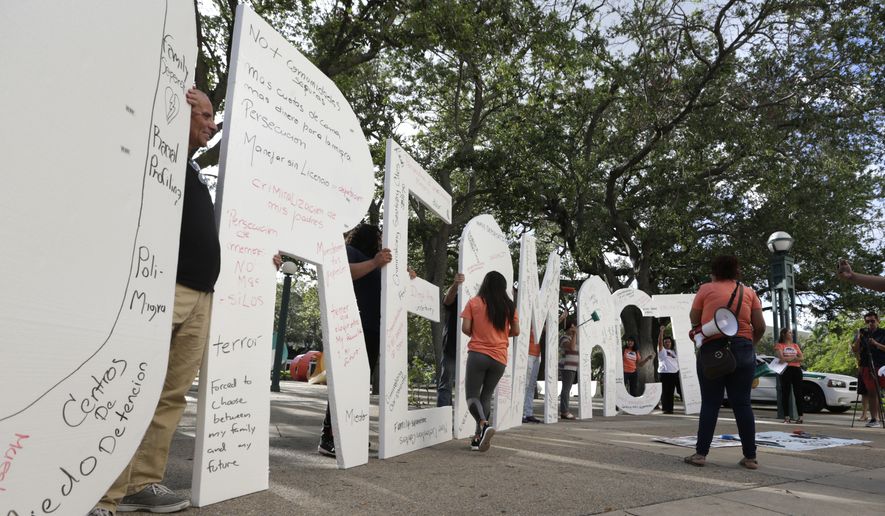Legalizing 2 million illegal immigrant “Dreamers” would cost the government $25.9 billion over the next decade, as those now-legal people would claim more tax, education and other benefits they haven’t been able to get before, the Congressional Budget Office said Friday.
The CBO also said newly legalized Dreamers would sponsor 80,000 more immigrants to enter the country as part of “chain migration.”
Immigrant-rights activists have argued that legalizing Dreamers would be a financial boon to the country, but the CBO and the Joint Committee on Taxation suggested otherwise, saying that while they would pay somewhat higher taxes in to the government, they would take far more out of it.
The findings could be a blow to activists who have demanded the bill be included in any year-end spending deal. Congress already struggles to find offsets for other spending, and digging a hole more than $25 billion deeper could be difficult.
“In total, CBO and JCT estimate that changes in direct spending and revenues from enacting [the bill] would increase budget deficits by $25.9 billion over the 2018-2027 period,” the budget analysts said in their analysis.
The CBO said there are between 11 million and 12 million illegal immigrants in the U.S. now, and some 3.25 million of those would be eligible for the Dream Act.
Under the bill, anyone brought to the U.S. as a minor who has worked toward an education and kept a generally clean criminal record could apply for immediate legal status. Most of those would go on to be able to apply for citizenship eventually.
Of the 3.25 million eligible, about 2 million would actually apply, the CBO said, and 1.6 million of them would earn status over the next decade. Roughly 1 million would go on to become citizens within the decade, allowing them to sponsor other relatives to enter the U.S., analysts predicted.
Even people who can’t speak English would be able to qualify for tentative legal status because the educational requirements can be done in Spanish, the CBO said.
The new CBO report looked only at the taxes paid and benefits collected by Dreamers. It did not include a “dynamic” score looking at the costs and benefits once the effects on the economy are included.
Past CBO estimates of broader immigration legalization bills have done “dynamic” scoring, and those found legalizing migrants would be a positive factor in the near term because there would be more people working above board, paying taxes.
• Stephen Dinan can be reached at sdinan@washingtontimes.com.




Please read our comment policy before commenting.